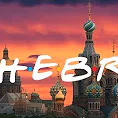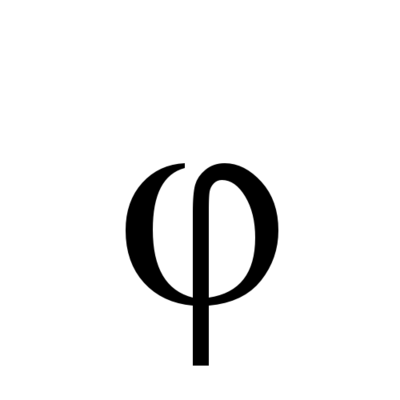TL;DR: Competitors in integrating with Atlassian are not allowed to incorporate code after the change because they used it in free add-ons, which caused the official integration (a paid add-on that is the sole source of funding) to be labeled a scam by a review in late August.
Plus, the thing was never really open source anyway:
draw.io is also closed to contributions, as it’s not open source. We follow a development process compliant with our SOC 2 Type II process. We do not have a mechanism where we can accept contributions from non-staff members.
Open source means that the source code is…open, that everyone can view and use it, it doesn’t mean that everyone can contribute to it. Or am I wrong?
People usually use the open source definition from the Open Source Initiative. That definition does have extra requirements:
Damn great username btw 👌
Thanks for the clarification!
What you a referring to is often called “source available”
@peregus yes, wrong. Being “open” doesn’t mean just “readable”. Imagine an open bird cage, not just an open book. It needs to be open to fly free.
The definition of the worlds open source seems to me that the source is readable by everyone. If you mean something different like @stochastic_parrot@sh.itjust.works said, then that’s something else.
@peregus why do you think so? My view is backed by the two official definitions from OSI and FSF, plus the wording of specific licenses. Your definition is backed by… linguistics? While ignoring the second (open cage) meaning of “open”? Quite strange narrow definition, don’t you think? And at odds with everyone who has been doing open-source for decades.
That is usually referred to as “source available” and doesnt fall into the category of open source.
Then nvidia produced Open Source code then I guess?
(There were Repos, but everything was Copyrighted. Noone was technically allowed to use it afaik, but it was still there about some AI stuff back then)
@ReakDuck I’m sure nvidia would like that, this “open source” label is good for marketing. They just want to avoid being actually open. Have the cake and eat it, like many businesses do.
Noone was technically allowed to use it
There is your answer. draw.io can be used by everyone and for almost every purpose, so the situations aren’t even remotely the same.
Chatgpt please refactor this code entirely but keep the function input and output the same.
Just wondering, if a project switch to close source from open source, all the donation to the stage when it’s open source will be sent back to the donor or counted as shares?
They count as…gone! Gone to develop what’s been open source until it becomes closed source. As I think it should be, because what you helped to develop with your donation is still there.
I don’t see a CLA so this is somewhat surprising that all ~30 contributors would be okay moving away from open source.
Unless this was a unilateral decision
Apache is a permissive license, plus:
draw.io is also closed to contributions, as it’s not open source. We follow a development process compliant with our SOC 2 Type II process. We do not have a mechanism where we can accept contributions from non-staff members.
This was added wayyyy before. OP is making this much more of a deal than it actually is.
@Aatube I don’t see how OP is making it a big deal. That post is merely stating facts, as confirmed by the company representative in the GitHub discussion. Yes, the project was never “open-source-like governed”, but it was technically open-source software. With the additional restriction in the license it’s not anymore. All pretty theorical, but nevertheless true.
“No longer open source” is factually true. However, it gives the impression that they did something much more drastic. It would be much better to just get to the point with something like “draw.io forbids competitors for Atlassian integration from using their code”.
Up until a year ago, the README explicitly said they didn’t claim to be an open source project: https://github.com/jgraph/drawio/commit/8906f90ac0cc50a0c6da77c28cf9b2b2339277b1#diff-b335630551682c19a781afebcf4d07bf978fb1f8ac04c6bf87428ed5106870f5L10
Appreciate it, i wasn’t familiar with the project and didn’t see that!
Whatever, I’m using it regardless of what shitty commercial alternatives tried to be shoved down my throat. If Draw.io goes shit I’ll just switch to ditaa
Thanks for the note on Ditaa. I didn’t know it existed but I love the idea of rendering bitmaps from ASCII, especially on the web. It’s like Mermaid but the original syntax is a diagram in and of itself!
Like the author writes:
There is a number of formats that are text-based (html, docbook, LaTeX, programming language comments), but when rendered by other software (browsers, interpreters, the javadoc tool etc), they can contain images as part of their content. If ditaa was intergrated with those tools (and I’m planning to do the javadoc bit myself soon), then you would have readable/editable diagrams within the text format itself, something that would make things much easier. ditaa syntax can currently be embedded to HTML.
It’s still open source. It’s just that development has ceased.
It’s not open source and development has not stopped.
Whatever is still going on after the proprietary fork doesn’t count. It is irrelevant, just some other payware that will enshittify as it is resold. The last canon version is the unburden foss version. For practical purpose the development ended there and it’s fine. It’s great it made it that far before dying. At least tgat version won’t backslide in functionality or won’t leverage it’s adoption to extract rent.
Oh, it will backslide. This won’t run on lastest Chrome in 10 years time.
Is that web software not html5 compliant ?
Is there an actual open source alternative to visio?
When excalidraw was mentioned in another comment I think it would also be worth to mention tldraw even though I don’t kniw whether it can be counted as an replacement since I never used draw.io.
deleted by creator
Damn it… I literally just found draw.io like 2 weeks ago.
deleted by creator
deleted by creator
I really don’t understand the difference between free software and open source at tis point. It would make sense to me if this would make it nonfree, but I don’t understand why is it not open source anymore. Isn’t the open source definition a broader one than that of free software?
Open Source Software follows the Open Source Definition, while Free Software follows the Free Software Definition.
They have heavy overlap, one is not a subset of the other, and they are similarly restrictive, just shepherded by different groups. I’m sure there are licences that satisfy one but not the other, but they would have to be few and far between; just reading through each it’s not obvious how one could satisfy only one definition.
Short and not completely true answer: Free Software and Open Source are the same thing, just with different reasoning behind them. Hence “FOSS” and “FLOSS” are also used, which combine both terms.
@ReversalHatchery @velox_vulnus
It violates “freedom 0” of the Free Software Definition too, so no difference there. This limitation on use makes is non-open-source AND non-free-software. https://www.gnu.org/philosophy/free-sw.en.html#fs-definition
It’s clear that it’s not free software, because as the name suggests, that’s about freedoms.
What is not really clear is that it’s not open source. To me at least it means that the source is public, you can change it, use it, send in patches, etc, but possibly with some limitations.
If I give you a free beer, you have one beer. If I give you the recipe, you can make your own beer. You do have to make your own open source beer or you can hire someone to do it for you or perhaps take you through the steps a few times until you’ve got it. With luck there will be a community of open source beer brewers with whom you can interact and improve those recipes.
Free software is free until it isn’t! The illicit drugs industry works in a similar way (the first hit is for free).
Never read something more wrong about the subject. I sounds like you don’t actually know what Free Software refers to, and that it has nothing to do with the price.
Yeah the free beer thing is what I use to explain what the “free” doesn’t mean. “Free as in freedom. Not free as in free beer.”
And despite that, if was still newsworthy enough to be posted like 6 times in total 😅
I posted it to 8 communities because there are 8 communities I am aware of where this on-topic. Some people might be subscribed to only a subset of them. This is the natural consequence of the fediverse enabling us to have more than one community for discussing the same topic.
I suppose some instances cut others off as well (I see only 6 total) so you have a fair point
To my mind, the ideal would be that if you, as the person who wants to share some ‘open-source’ news, chose one community that you think is ‘best’ (based on what instance it’s on, if the mods are real people and are active, participation levels, whatever you think really). And we, as subscribers, would do the same. This way, the ‘good’ communities would thrive, and the ‘bad’ ones would wither away. What happens at the minute, is that there’s 8 communities for open source, and there’ll always will be, because they aren’t in competition with one another.
(this is mostly just a general point about cross-posting behaviour, it’s not meant as a dig at you personally).
problem is I have no idea which of these communities is “best”, I do not pay enough attention to things going on behind the scenes to have any knowledge of that.
problem is I have no idea which of these communities is “best”
Its a bit basic but so far I’ve just gone with the largest population. Usually I’m just after the most activity and that generally scales with population. It keeps things relatively simple.
deleted by creator
There is some lemmy.world sure but also:
- lemmy.ml
- sh.itjust.works
- programming.dev
- lemmy.dbzer0.com
- programming.dev
- lemm.ee
- lemmy.kde.social
If a topic suits the philosophy of its lemmy instance its more likely to attract a healthy population. Then when I’m looking for a community on a topic it doesn’t really matter which instance that community is on.
Thx looks like I am only in this one.
deleted by creator









